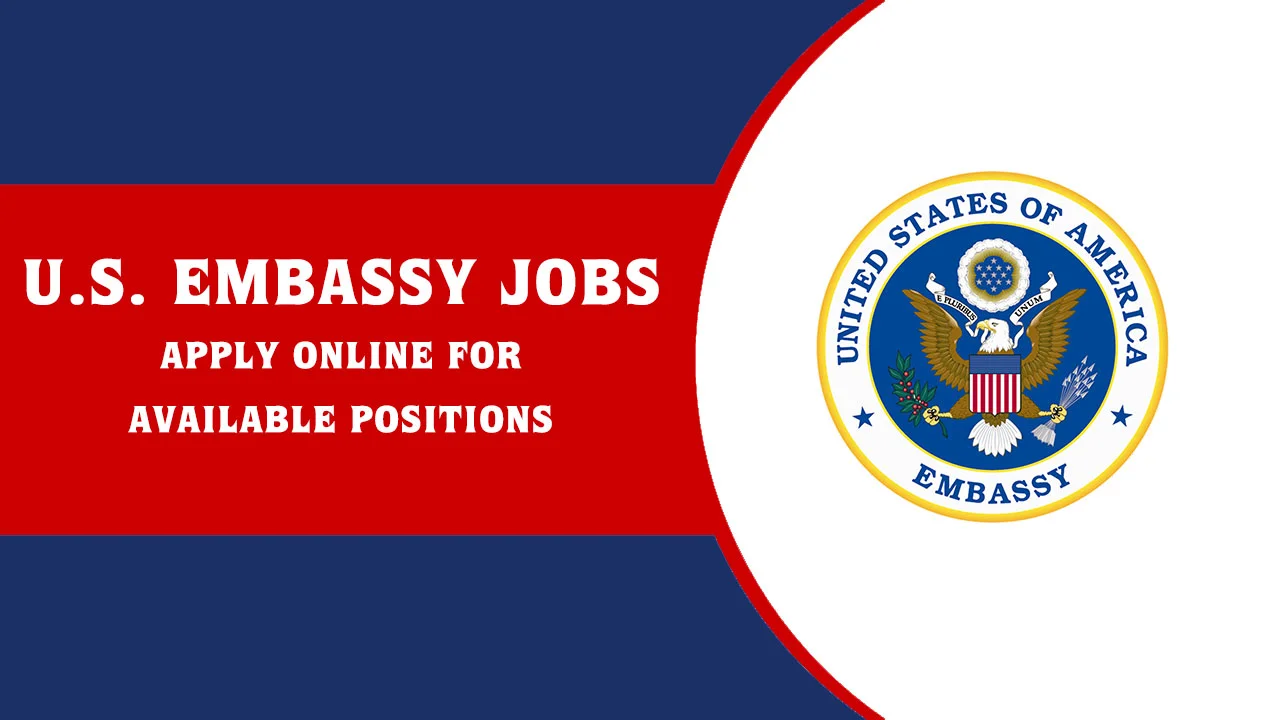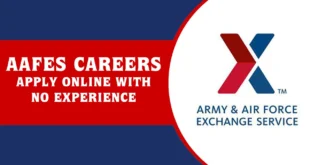Candidates hoping to support diplomacy, serve their citizens, and contribute to global cooperation within their own communities should explore U.S. Embassy Jobs. Many Americans might associate working in an embassy with international assignments and far-off destinations. However, a significant number of positions are available right at home, within the borders of the United States, through local U.S. Embassy and Consulate offices. These jobs offer the exceptional opportunity to participate in international diplomacy without needing to relocate overseas or having a passport in hand.
Careers at the U.S. Embassy often involve diplomacy and foreign affairs. There is a wide variety of jobs available in diplomatic environments that go well beyond traditional foreign policy. From administrative and financial roles to technical, security, customer service, and IT-based support jobs, there’s space for a number of skill sets. Many of these roles fall under the category of Locally Employed Staff. This makes them accessible to U.S. citizens and residents who meet certain criteria and are interested in supporting the country’s international missions. So apply soon!
For More Latest Government Jobs: Click Here
| Company Name: | U.S. Embassy |
| Job Locations: | United States |
| Last Updated on: | August 15th, 2025 |
US Embassy Jobs & Careers 2025 | Newest Opportunities

Overview of the U.S. Embassy
The U.S. Embassy is an official diplomatic mission that represents the government of the United States in a foreign country. It serves as a primary means of communication between the U.S. and the host nation, facilitating political, economic, military, cultural, and social relations. Every embassy is located in the capital city of the host country. It is headed by an Ambassador, who acts as the President’s highest-ranking representative abroad. These missions are necessary to promote American interests, safeguard U.S. citizens overseas, and developing cooperative relationships with international partners.
The main responsibility of a U.S. Embassy is to maintain and strengthen diplomatic ties between the United States and the country it serves. It acts as a facilitator for bilateral discussions on a wide range of issues such as security, trade, humanitarian aid, and international law. Embassies often coordinate high-level meetings, support treaty negotiations, and relay official messages between governments. Through their economic and political sections, embassies collect and analyze information to guide foreign policy decisions. They also provide information about the internal affairs of the country they are visiting.
Work Environment & Benefits
Working in a U.S. Embassy environment is unlike most conventional workplaces. The organization’s culture is highly structured, professional, and goal-oriented, yet balanced with a focus on teamwork, individuality, and personal development. Employees are expected to uphold the highest standards of honesty, loyalty, and diplomacy. In addition, they are expected to be approachable and responsive to both their colleagues and the public. The daily routine involves interdepartmental collaboration, multilingual communication, and direct interaction with both local and federal officials. Although operations follow formal federal guidelines, the working environment encourages learning, equality, and cultural awareness.
The benefits of applying for U.S. Embassy jobs are plentiful and comparable to other federal positions. Employees here not only enjoy a sense of job security but also have access to a wide selection of advantages that extend beyond salary. Positions come with a clear structure for promotion, progress, and ongoing development. The perks attached to these roles are designed to reward long-term commitment and support personal well-being. Key benefits include:
- Job Stability: Embassy jobs are organized under the federal system, offering secure employment with low turnover and long-term career paths.
- Health and Insurance Plans: Employees often receive comprehensive medical, dental, and life insurance packages, which are especially valuable for those with families.
- Pension and Retirement Plans: Retirement benefits, including contributions to government pension systems and savings plans, provide financial peace of mind for the future.
- Paid Holidays and Leave: Federal holidays, paid vacation, and generous sick leave policies support a healthy work-life balance.
- Training and Career Development: Regular training programs, online courses, and development workshops are available to enhance abilities and promote internal growth.
- Diversity and Inclusion: The U.S. Embassy prioritizes equal opportunity, with effective hiring policies that promote fairness and cultural respect across all roles.
Salary Range and Job Levels
The salary structure for U.S. Embassy jobs is based on federal pay scales, usually outlined under the General Schedule (GS) for domestic roles and Foreign Service pay scales for international posts. These pay structures are divided into grade and step levels, which allow employees to progress based on time in service, performance, and additional responsibilities. The exact pay grade is assigned according to the role’s level of difficulty, required qualifications, and level of responsibility. Entry-level positions generally start at lower GS levels, such as GS-4 or GS-5, while more advanced or specialized roles may start at GS-9 or higher.
Pay is also influenced by location, as cost-of-living adjustments may apply depending on the area where the job is based. For instance, a GS-7 administrative assistant in Kansas may earn a different base salary than someone in a similar role in Washington, D.C. Beyond the base salary, federal jobs often come with annual step increases, performance bonuses, and additional allowances when applicable. This structure ensures that both beginners and experienced professionals have room for progression and long-term financial growth. Their salary details and job levels are as follows:
- Entry-Level Ranges: Positions at the GS-4 or GS-5 levels often offer starting salaries of approximately $33,000 to $42,000 annually.
- Mid-Level and Specialized Roles: The GS-7 to GS-9 roles may range from $45,000 to $60,000 per year and often require relevant experience or a college degree.
- Advanced Roles: Senior positions may be classified as GS-11 and above, offering salaries exceeding $70,000 per year along with increased benefits and oversight responsibilities.
- Cost-of-Living Adjustments: Some locations offer locality pay that adjusts salaries based on living expenses.
High-Opportunity Cities for U.S. Job Seekers
Interest in U.S. Embassy jobs is growing throughout the country, even though most people associate them with cities or overseas assignments. Several lesser-known cities are steadily getting attention for hosting federal functions such as embassy support, contractor services, and administrative hubs. These towns, while small in population, offer entry points into federal employment for those wishing to start meaningful careers in the public service.
Independence, KS
Independence has become a hub for federal and administrative service opportunities. This Kansas town occasionally features roles related to data processing, records support, and documentation reviews that are related to government operations. The small population and limited applicant pool often work in favor of candidates who meet the minimum requirements. This makes Independence a good target for entry-level candidates and those new to federal pathways.
Tucson, AZ
Tucson is a city that sees constant interest due to its location near the U.S.-Mexico border. This geographical advantage results in a higher number of consular and public service roles, which include passport support, visa services, and legal documentation processing. Administrative and customer service positions are commonly posted here, with regular opportunities for applicants with basic qualifications and strong interpersonal skills.
Coffeyville, KS
Coffeyville is another Kansas town that sees periodic openings for embassy-related contract work. These are often short-term or project-based roles connected to broader federal or consular support. Positions might include administrative processing, document handling, or IT services managed by subcontractors that serve larger federal departments. While the job volume isn’t always high, the competition is normally lower, giving candidates an advantage in securing interviews and acquiring federal experience.
Types of Jobs Available
There are many departments and specializations involved in U.S. Embassy jobs. Whether someone is looking to start at the entry-level or already has years of experience in a related field, there are numerous positions that contribute to the embassy’s overall function and outreach. While each job comes with specific requirements, many roles welcome first-time applicants or those who bring transferable skills from other industries.
Administrative Support
This category includes roles such as document control, scheduling, logistics coordination, and office management. Employees in these positions ensure daily operations are carried out efficiently. They handle correspondence, prepare reports, manage filing systems, and assist senior staff with organizational tasks. These are often some of the most accessible roles for entry-level candidates.
Security and Technical Roles
Security and technical staff are responsible for maintaining the safety and functionality of the embassy facilities. They manage access control, oversee surveillance systems, and handle technical equipment related to communication and data management. Many of these positions require specialized training or certifications, although some technical support jobs may start at a basic level.
Customer/Public Service
Public-facing roles are important to the embassy’s mission of citizen support. These employees handle passport inquiries, visa applications, notarial services, and general assistance for both American and foreign citizens. Having effective communication skills and a professional attitude are necessary. These positions are commonly offered in cities with high visitor traffic or international connections.
Human Resources
HR professionals working within embassies manage recruitment, onboarding, internal evaluations, and personnel support. Their responsibilities include processing paperwork, guiding policy implementation, and helping maintain a productive work environment. These roles often require prior HR experience but may also include assistant-level positions suitable for career starters.
Finance and Procurement
Staff in this area handle budgeting, purchasing, payroll, and auditing. Finance professionals ensure that embassy operations remain economically responsible, accurate, and in accordance with federal regulations. Procurement specialists also manage vendor relationships and supply chain coordination. Positions here often require financial literacy and familiarity with government procurement systems.
Facility Management
Facility teams oversee building maintenance, utility systems, safety inspections, and vendor coordination for the physical infrastructure. They make sure the embassy offices are functional, safe, and efficient. Jobs in this category range from general maintenance staff to supervisory roles, with several positions open to those with technical or trade experience.
Eligibility Criteria
Eligibility to apply for U.S. Embassy jobs depends on several factors, most notably citizenship, legal residency, education, and personal background. While some positions are open strictly to U.S. citizens, others are available to local residents depending on the embassy’s staffing structure. For roles located within the United States, especially those involving confidential information or administrative access, U.S. citizenship is commonly required. However, in some cases, contractors or service positions may allow applications from legal residents who meet specific work authorization standards.
Language proficiency can also influence eligibility. Although most positions within the U.S. do not require foreign language skills, some roles may request bilingual abilities. Especially if they directly interact with different communities. Educational qualifications are clearly stated in job descriptions, usually requiring a high school diploma for entry-level roles, with associate’s or bachelor’s degrees preferred for specialized positions. Additionally, applicants must also pass background checks and, for certain positions, security clearances. Other eligibility requirements include:
- Reliability and Professional Conduct: Applicants must possess a track record of reliability, ethical behavior, and respect for federal workplace standards.
- Legal Compliance History: A clean legal record, especially concerning immigration, security, and employment laws, is necessary for maintaining trust and eligibility.
- Adaptability to Federal Protocols: Ability to operate within formal systems, follow confidentiality policies, and utilize standardized communication channels.
- Technology Literacy: Many roles, including entry-level ones, involve digital systems for records, communication, or data input, so comfort with basic office technology is often a baseline requirement.
- Strong Communication Abilities: Clear, respectful, and effective communication is important, especially for positions that involve public interaction, documentation, or departmental coordination.
Application Process for U.S. Embassy Jobs
Those interested in applying for U.S. Embassy jobs should start by exploring official government platforms. The most reliable sources include the State Department’s careers portal, USAJobs.gov, and individual embassy website for regional postings. Each platform allows filtering by location, job type, and agency, which makes it easier for candidates to narrow down listings based on their interests and qualifications. For example, someone interested in administrative support roles in Tucson, Arizona can use location filters to find local opportunities tied to consular or federal outreach programs.
Once a job listing is found, the next step involves preparing and submitting the federal resume, which is different from a standard corporate resume. It should be highly detailed, detailing the exact dates of employment, hours worked per week, supervisors’ names, and comprehensive descriptions of duties and accomplishments. Applications are submitted online through the corresponding platform, often accompanied by additional documents like transcripts, cover letters, and eligibility verification. After applying, it can take several weeks to receive a response, depending on the role and number of applicants. Interviews may be conducted virtually or personally, and usually include behavioral questions and scenario-based evaluations. Applicants should focus on clear communication, accuracy, and willingness to learn as they acquire experience.
Summary
While not always top of mind, U.S. Embassy jobs offer a meaningful and stable path for those who want to contribute to public service and global diplomacy within their own communities. These positions support the most important government functions and ensure that both local and international operations are managed effectively. From entry-level positions that provide a strong starting point to long-term career tracks with potential growth opportunities, there’s a chance for growth at every stage. Even in towns like Coffeyville, Independence, or Tucson, these jobs can be found and pursued with confidence. Therefore, anyone motivated to make a difference, whether they are new to the workforce or looking to shift into the public service, is encouraged to explore what these roles can offer.
 Find Newest Jobs in USA
Find Newest Jobs in USA



